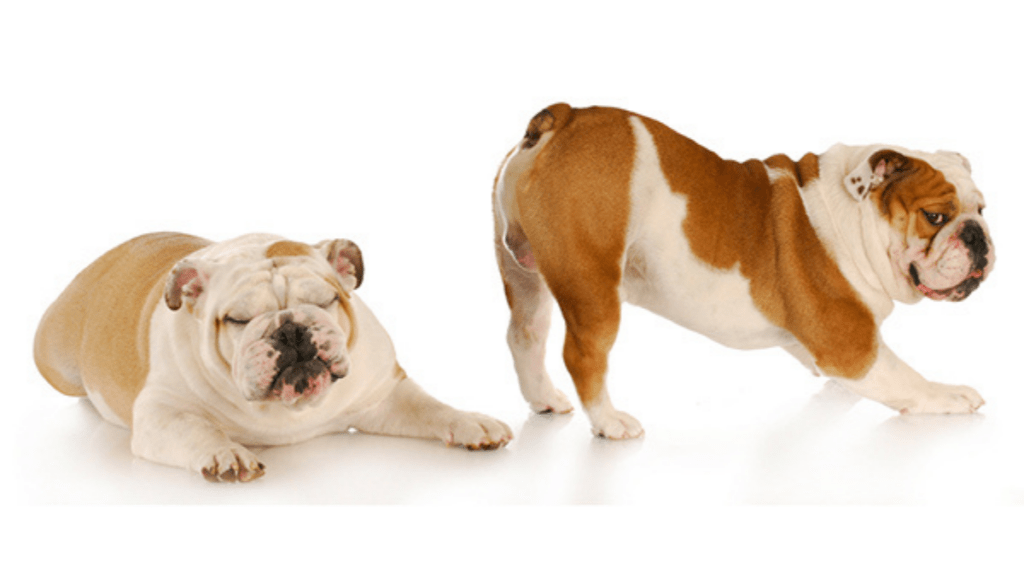You’re enjoying a calm, cozy evening with your family… The humans are fed, the dogs are fed, and you’ve just started the next episode of your latest Hulu binge, when all of a sudden you smell something rather unpleasant. Everyone looks around, trying to pinpoint the guilty part. All eyes land on Buddy, your beloved Boxer who’s stretched out on the loveseat like it’s his personal king-sized bed. Flatulence: we all have it, even our dogs. But the fact that gas is something we all have in common doesn’t make it any more pleasant. Buddy sure knows how to clear a room! So what can you do to reduce the frequency and severity of your pup’s flatulence? What are the most common causes of gas in dogs? Read on…
Diet
When it comes to dog food, there are SO many options. A trip to Chuck & Don’s can be absolutely overwhelming, as you stand there staring at the dozens of varieties of dog food…
Which food would be best for my dog? I’ve heard that grains are bad, and these bags say that they’re grain-free. I know some people who went vegan…maybe my dog should go vegan too. Wait, what about a raw diet? Those have been on those TV commercials lately…
On that note, the act of switching to a new diet (grains or no grains) can also be the cause of excess gas. If you feel that your dog’s flatulence has been worse since you opened that new bag of dog food, it could be the cause! Some diets affect a pet’s gastrointestinal tract, especially if that pet has a sensitivity to a certain grain or protein. In these scenarios, we usually recommend sticking to high quality foods with as few ingredients as possible. If you have questions about what type of diet is best for your dog (or cat), make sure to ask your veterinarian for a recommendation.
If a change of diet doesn’t improve your dog’s gas problem, there may be a different contributing factor that needs your attention…
Parasites
So how do parasites lead to bad gas? Well, many intestinal parasites cause GI upset, leading to loose stool, flatulence and other side effects. Parasite are common and risk of exposure can be pretty high for dogs who spend time outside, but they are also easy to diagnose and simple to treat. Even dogs on year-round Heartgard can pick up a parasite. If your dog is experiencing any kind of GI upset like gas or loose stools, we recommend asking your vet to check a stool sample.
Obesity
This is the conversation that no pet owner wants to have with their vet! After all, feeding is an expression of love, right? Our pups are pretty darn good at convincing us that they deserve all the treats in the world (which we totally know they do!), but we can’t fall into the age-old puppy face trap. Overfeeding our pets can cause a whole lot of unintended consequences, bad gas being one of them. Not only are overweight dogs more gassy, but obesity also leads to much more serious problems. Research has shown that overweight and obese pups are more prone to a shorter lifespan, urinary bladder stones, various types of cancer, arthritis, heart disease, diabetes, and hypertension. Nobody wants these things for their dog! Your veterinarian can help you calculate your pet’s caloric needs and ideal weight, and even assist you with a diet plan for you pooch if you’re interested.
Air
If you just bought a custom $30 dog bowl on Etsy (Because who would do that? Not us…), there are ways to create a “slow feeder” bowl with what you’ve already go. Try adding a large ball to your dog’s kibble, something that your quick-eating friend can’t swallow. We usually recommend a couple golf or tennis balls, depending on the size of the dog. This will encourage your pup to have to eat around the balls, and it may slow them down. Some dogs can outsmart their owners; they will just remove the ball from the bowl, or dump the contents of the bowl on the floor. The latter action actually works in our favor, though — scattering the food out on the floor can slow a dog down as well. Other dogs may need to be given smaller meals more often. Instead of feeding a meal all at once, you could try splitting it up into two to four smaller feedings.
Nerves
Some dogs handle anxiety in their own unique ways, much like people. Some have full-blown pain attacks with symptoms like panting, shaking, and chewing up your favorite throw blanket. Others just get rather flatulent. If this sounds like your dog, do your best to reduce or eliminate your dog’s exposure to the stress-invoking events. You could also consider discussing anxiety issues, possible behavior modification, and anti-anxiety medications with your veterinarian.
Flatulence, even in human medicine, is not the most comfortable subject to discuss with your medical professional. Having this conversation with your vet, however humorous it may turn out to be, could provide some helpful insight into the overall health and wellbeing of your dog. If your dog’s gas has become more of a problem than just an annoyance, we encourage you to discuss with your vet the various factors mentioned in this article to see if any of them could apply to your pup.






